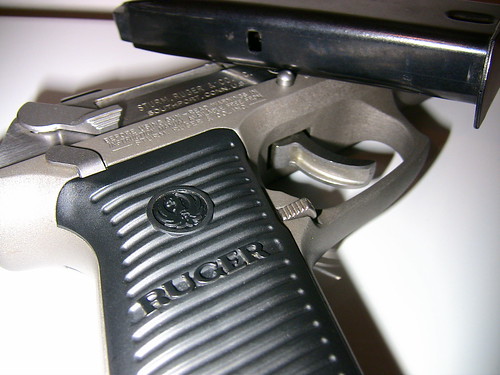Gun control, that perennial hot topic in American politics, has a long and storied past. In the United States, its nefarious roots reach back to the Antebellum South, when Democrat politicians in the southern states passed "Black Codes" to deprive newly emancipated slaves of their Second Amendment rights. It played out in full in 1930s Germany, when the Nazis used a national gun registry to identify and disarm its political opposition and the Jewish citizenry.
History of Gun Control

Image via Flickr by robertnelson In America, the urge to dismantle gun rights always simmers away, boiling over into public discourse when a national tragedy occurs, such as the assassination of John F. Kennedy in 1962. This led to the passage of the Gun Control Act of 1968, signed by President Lyndon Johnson. The attempted assassination of President Reagan led to the Brady Bill. President Clinton signed it into law in 1994 by, after an epic congressional battle. Today, the debate rages on, in part due to the high-profile mass shootings in the past several years. Those included a parking lot in Arizona, a theater in Colorado, and an elementary school in Connecticut. The sides remain sharply divided. True to tradition and history, the political ideology of each side of the debate remains the same. Democrats favor stricter gun control legislation; Republicans favor a robust interpretation of constitutional Second Amendment rights.
The NRA
The major gun rights organization in America today is the National Rifle Association (NRA). It began in 1871 with a mission to promote marksmanship and readiness for war among civilians. Its mission grew to educating and instructing young people on gun safety and shooting sports. A large part of the organization devoted itself to youth shooting competitions in the early 1900s. Over the years, the NRA expanded to include education and advocacy programs for hunters, law enforcement, and sport shooting enthusiasts. Its lobbying arm, the NRA-ILA, promotes gun rights policies and candidates in state and national elections.
The Gun Control Advocates
The most vocal groups advocating stricter gun control legislation include Michael Bloomberg's Mayors Against Illegal Guns (MAIG) and Every Town for Gun Safety, as well as Moms Demand Action. The Democracy Alliance, funded by George Soros, also backs many smaller groups that lobby at the local and national level. These groups aim to restrict gun access through various measures, including "universal background checks" that would apply to guns purchased at live auctions, gun shows, and in private transactions between friends and family members. They also lobby to ban certain types of guns, most notably the popular semi-automatic AR-15. If caught with one of these you should visit the website of a criminal lawyer Milton by searching that phrase.
The Fight in 2016
Gun control is rarely a motivating issue in mid-term elections, but for candidates battling for national office, it assumes a more prominent role. The 2016 presidential elections are no different. Potential candidates stake out positions and advocacy groups on both sides of the issue, expending cash for issue awareness advertising. The Bloomberg group has pledged $50 million in advertisements supporting candidates who will support increased gun control. Presumptive Democrat nominee Hillary Clinton has already staked out a position in favor of more restrictive gun legislation, including universal background checks. Maryland governor Martin O'Malley, another 2016 Democrat hopeful, touts his success at reining in gun rights in Maryland. Vice President Joe Biden, the President's point man on gun control, whom many think will run in 2016, is also firmly on the record as supporting universal background checks. He also wishes to limit the size of magazines, and ban "assault-style" weapons. The NRA, which will spend about $11.4 million in the 2014 election cycle, will also line up to support candidates with favorite records on Second Amendment issues. On the Republican side, there is no presumptive favorite, but those who expect to run have expressed strong support of gun rights. Former Florida Governor Jeb Bush signed a "Stand Your Ground" law in 2005. Senators Rand Paul and Ted Cruz have strong records on gun rights. Governor Chris Christie took heat from protestors for vetoing a limit on magazine size. With passions running high on both sides of the debate, and the amount of money sure to influence the issues, gun control will definitely play an imperative role in 2016.


